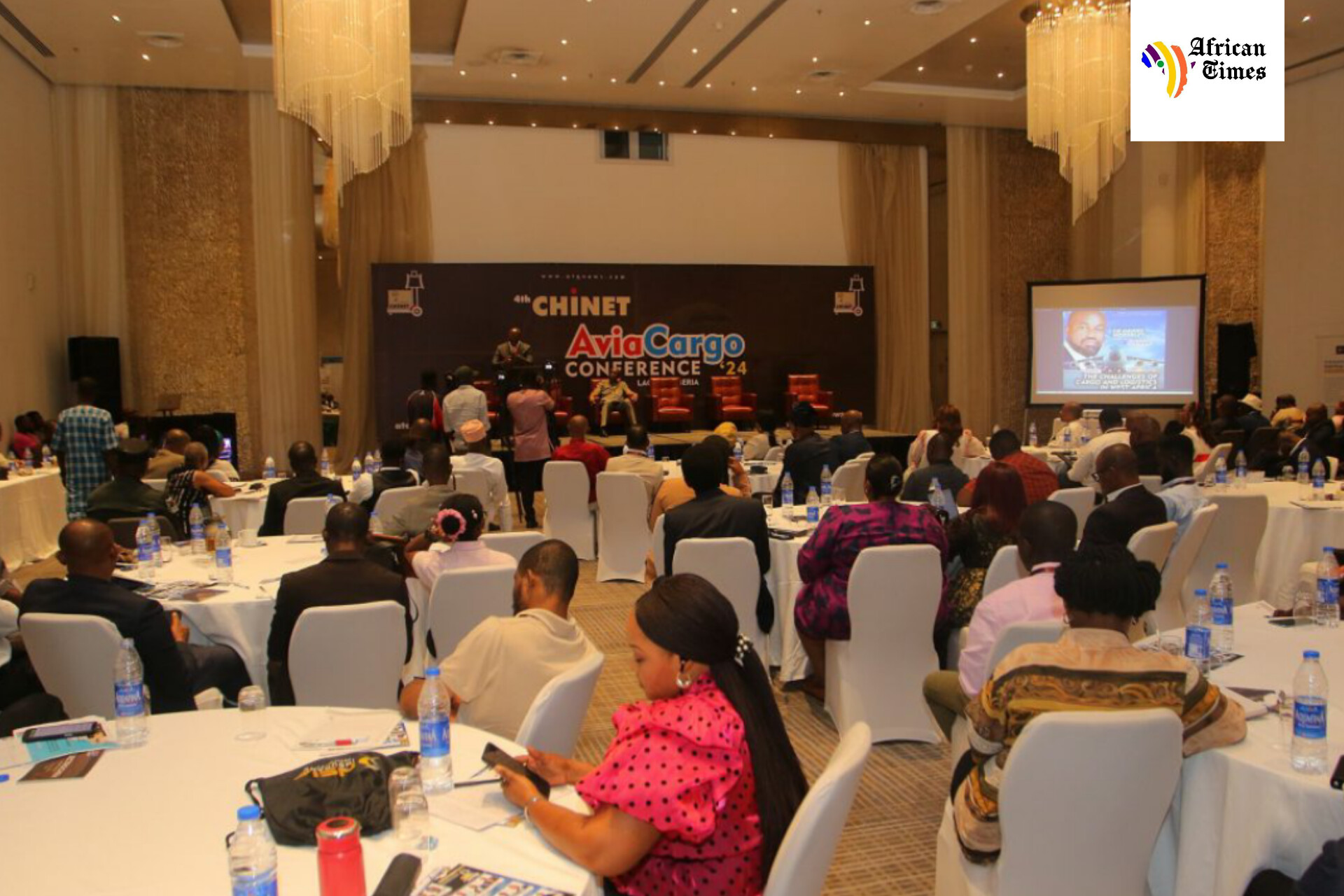APFFLON Highlights Critical Challenges Facing Cargo Exports at Nigerian Airports, Calls out NAFDAC, NCS, NIS, others

Nigeria’s agro-allied sector, long considered a vital contributor to the nation’s economic growth, continues to face significant challenges, as cargo exporters are increasingly expressing frustration over the persistent bottlenecks that undermine their operations at key international airports.
At the 4th CHINET AviaCargo Conference held in Lagos recently, the President of the Africa Association of Professional Freight Forwarders and Logistics of Nigeria (APFFLON), Otunba Frank Ogunojemite, highlighted the pressing challenges hindering the export sector at Nigerian airports.
In his presentation, titled “Challenges of Export at Nigerian Airports,” Ogunojemite emphasised the need for Nigeria to address critical barriers in its aviation industry to boost export efficiency and competitiveness.
Ogunojemite underscored the importance of self-sufficiency in every sector of the economy, particularly in manufacturing and agriculture, to achieve the dual objectives of meeting domestic needs and generating foreign exchange through exports.
He stated, “The pride of every nation is self-sufficiency in every sector of the economy; to produce enough for its people and also export to other countries so as to earn foreign exchange.”
Ogunojemite highlighted that the core challenges faced by exporters at Nigerian airports include the high cost of aircraft maintenance, exorbitant freight charges, poor governmental incentives, and the overall quality of regulatory frameworks.
He also lamented the inadequate cargo security measures, the absence of modern technology, and the prevalent harassment and extortion by law enforcement agencies as significant hurdles.
“My years of experience and deep understanding of the freight forwarding logistics sector have provided valuable insights into the obstacles faced by exporters at Nigerian airports,” he noted.
One of the major impediments to successful exports identified by Ogunojemite is the bureaucratic red tape and cumbersome protocols imposed by the labyrinth of government agencies operating at the airports, often requiring multiple layers of approvals, which can sometimes take days or even weeks to process.
He called for a thorough review and enforcement of smoother processes to facilitate the export of potentially multi-million-dollar Nigerian goods. “The government and its agencies must review and enforce smoother processes to export of potentially multi-million dollars Nigerian goods,” he emphasized.
He also pointed out that many of the challenges stem from internal inefficiencies, including corruption, substandard regulatory practices, and other cargo freighting bottlenecks.
Ogunojemite argued that these issues have prevented Nigeria from capitalising on its vast market potential, particularly in the face of high international demand for Nigerian farm produce and other products.
“It is obvious that many facts have proven that it is Nigeria that is holding itself down from taking advantage of the huge market,” he remarked.
Ogunojemite discussed Nigeria’s readiness to benefit from the African Continental Free Trade Area (AfCFTA) agreement, which is projected to elevate 30 million people out of poverty and connect 1.3 billion people across 55 countries.
He stressed that for Nigeria to compete effectively in export trade, the country must address critical inadequacies within its export infrastructure; this includes improving certification and packaging capacities, resolving logistical deficiencies, and ensuring better access to key markets.
He also called out the extortion and bureaucratic bottlenecks that plague air freighting, with officials from agencies like NAFDAC, Nigerian Immigration Service, and Customs being major culprits.
“Officials of government agencies like Quarantine, NAFDAC, Nigerian Immigration Service, Customs, and others constitute obstacles to the easy movement of goods,” he stated.
Ogunojemite highlighted that these challenges often lead to unrecorded export activities, further complicating the sector’s growth.
To address these challenges, Ogunojemite proposed several strategic solutions:
- Infrastructural Development: Modernising and expanding airport facilities, including cargo terminals and warehouses.
- Automation and Digitalization: Implementing electronic platforms for cargo tracking, Customs clearance, and documentation by the Nigerian Aviation Authority.
- Efficient Customs Processes: Streamlining Customs procedures, reducing paperwork, and increasing transparency.
- Capacity Building: Enhancing training and retraining of personnel in cargo handling, security, and logistics.
- Regulatory Framework: Establishing clear regulations and standards for air cargo export.
- Public-Private Partnerships: Encouraging collaboration with private operators, particularly in investment and service provision.
- Competitive Pricing: Promoting competitive pricing for air cargo services to attract more exporters.
- Marketing and Promotion: Actively promoting Nigeria’s air cargo export services to attract international customers.
- Collaboration with International Airlines: Forming partnerships with international airlines to increase cargo capacity and connectivity.
The APFFLON President stressed that while seminars and policy discussions are essential, the realities on the ground, especially in farms, logistics chains, airports, and seaports, require urgent and sustained action.
He expressed concern over the discrepancy between recorded and non-recorded export activities, urging stakeholders to prioritise addressing these challenges to unlock Nigeria’s export potential.







